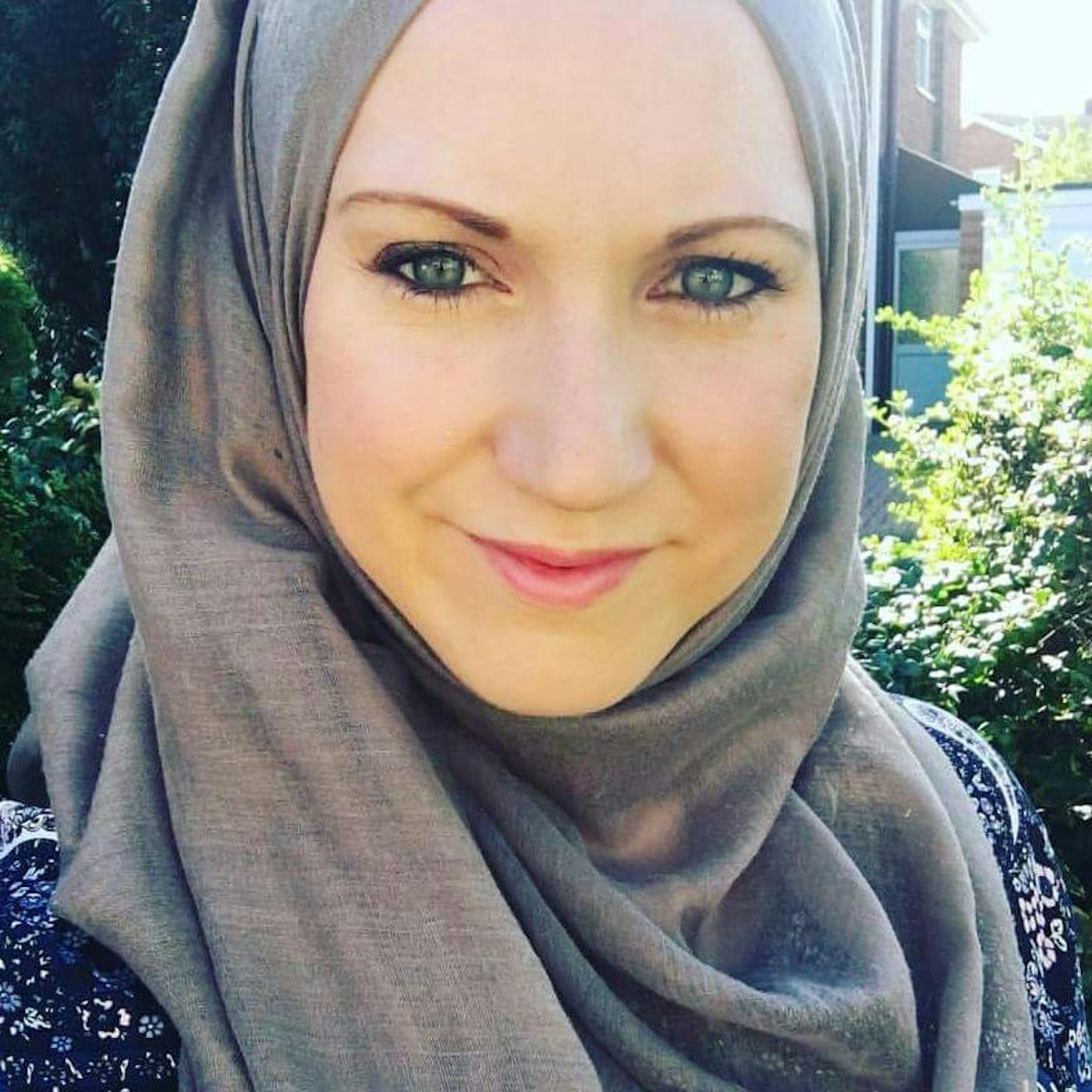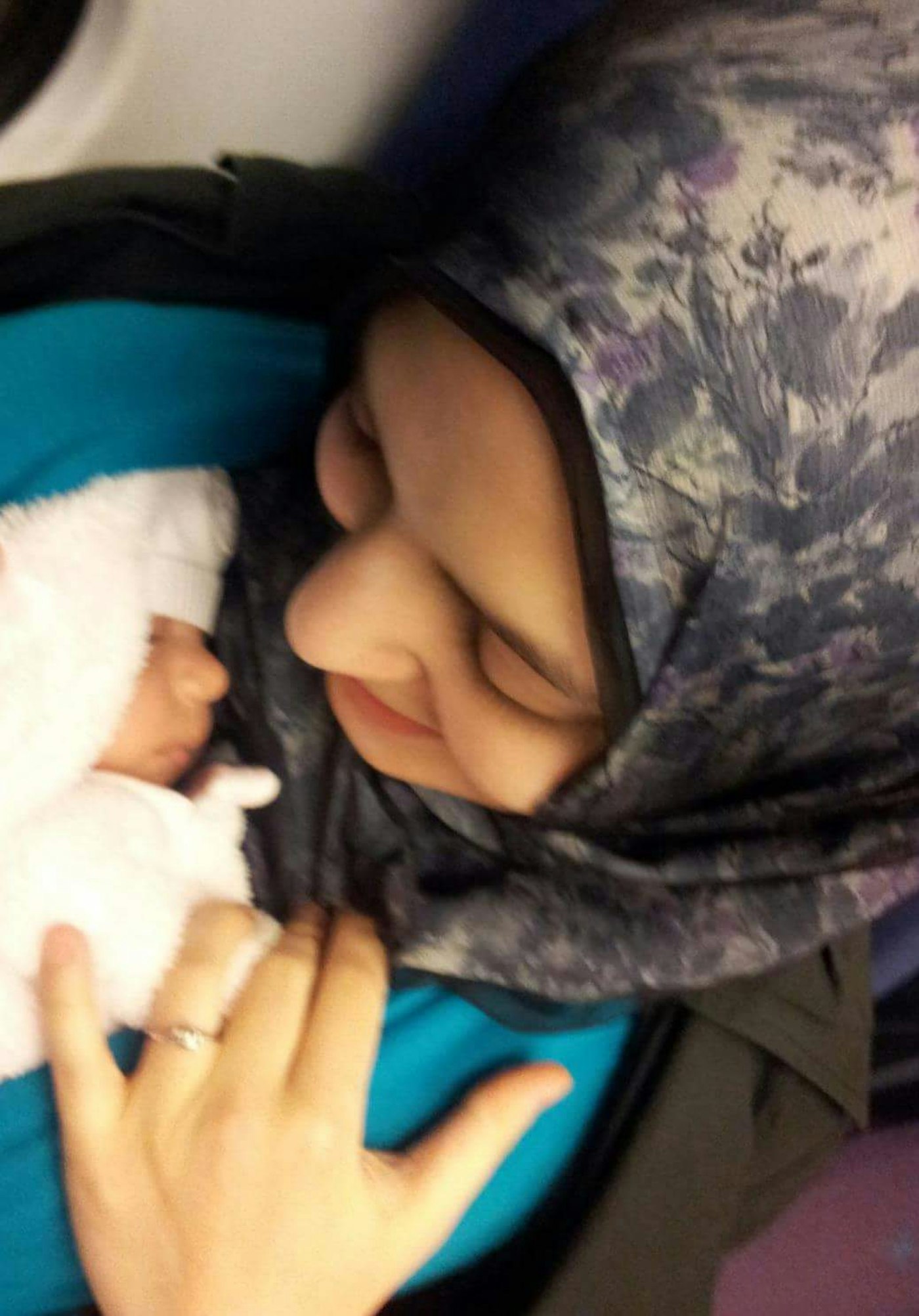2 Muslim Mothers Get Real About the Realities of Breastfeeding
by Selina Bakkar in Culture & Lifestyle on 22nd July, 2019

Breastfeeding is a massive part of the post-birth experience for a woman, however, it is focused on a lot less than the birth itself, and is often also neglected when discussing the nurturing of the baby thereafter. A woman’s body reacts to birth differently, recovers differently, heals differently and often may face some complications when it comes to breastfeeding. It is incredibly difficult for a number of women, and many different types of questions arise, we decided to ask two Muslim women to illustrate their experience and give tips to shed light on the varying obstacles that may occur and how to overcome them.
For the new mothers, or even for women who are curious and have never given birth yet, journalist Cherry Healy delves into the breastfeeding vs bottle debate and unpacks the questions we all have.
Our two breastfeeding mamas are none other than:
Sarah Yataghane is a mum of 3 girls, who is passionate about home education, respectful parenting and building communities that empower women to be there very best. Her blog is a space reflect and unpick all things relating to life a Muslim mum.

Sukaynah Kanno is a 32-year-old home educating mama of 2 with a background in Psychology and children with disabilities

1. Selina: When did you decide to breastfeed? (During pregnancy? before?)
Sarah Yataghane: I don’t think I ever made a conscious decision, it is just something I felt was extremely natural and I didn’t give it much thought…I just knew that I would (or at least I would try)
Sukaynah Kanno: Before I was pregnant it’s something I always thought as normal and natural. I had seen all my aunties breastfeed their children
2. Selina: Did Islam have a bearing on your decision? If so how?
Sarah Yataghane: Not really, I was aware that it was advocated but I didn’t over analyse on a religious level, it certainly didn’t impact on my decision.
Sukaynah Kanno: Yes once my first friend had her child and was breastfeeding I heard it was mentioned in the Quran and thought that was amazing. To hear that a child has the right to breastfeed, but also that it’s the father who has the responsibility of providing that was just mind-blowing for me when society usually places all that responsibility on the mother. I thought there must be a divine wisdom behind the importance of breast milk.
3.Selina: What else had a bearing on your decision to breastfeed?
Sarah Yataghane: Mama instinct
View this post on InstagramA post shared by Sarah (@a_bitofpink) on
Sukaynah Kanno: I once read the ingredients on a can of formula and found it almost scary to put all those artificial ingredients in a newborn baby. I believe formula milk no doubt has saved children’s lives but that it shouldn’t be seen as an equivalent to breast milk, it should be used medically when necessary.
4.Selina: What were your expectations before motherhood about
breastfeeding?
Sarah Yataghane: I thought it would be this beautiful bonding experience and you would just sit and coo into your baby’s eyes.
Sukaynah Kanno: I thought it was as easy as putting the baby to the breast. I was very very wrong!
5. Selina: How did those expectations change?
Sarah Yataghane: They changed VERY quickly because breastfeeding is HARD!! In fact, establishing breastfeeding in that first couple of weeks is almost harder than labour itself. Initially, it can be quite a stressful experience and those dreamy feeds come later when mum and baby have relaxed and both know what they are doing.
Sukaynah Kanno: My daughter was born prematurely and with a rare syndrome. We encountered nearly every complication that can come with breastfeeding. She was weak and unable to suck, she had bowel surgery and was tube fed, she had reflux and allergies, a tongue tie. It was a huge challenge
6. Selina: Do you feel this changes your bodily response to
breastfeeding?
Sarah Yataghane: No. Despite finding it very hard, my desire to continue was strong enough to push through.
Sukaynah Kanno: Breastfeeding was still the only thing I could for my child. And because I worked so hard during the 5 weeks she was in the hospital to establish my milk supply, attached to a pump every 2 hrs, when my baby was failing to suck effectively I just refused to give up. I think I needed to breastfeed to heal the difficult process I’d gone through in having a sick child.
7. Selina: Do you feel breastfeeding was an innately nurturing response or not?
Sarah Yataghane: For me personally it was but I know that is not the case for everyone, it is a very personal relationship.
Sukaynah Kanno: The first baby wasn’t as she was premature and in an incubator. I wasn’t able to hold her frequently and wasn’t allowed to breastfeed so as not to exhaust her. She was covered in wires and tubes. Breastfeeding was a mechanical process of extracting milk with no physical contact. I felt more like a cow than a human mother. But the process was emotionally healing to know I was able to do something for my child when I couldn’t even do the basic care needs for her. For my second child it was an immediate and innate response to holding him it healed my previous scars.
View this post on InstagramA post shared by Sarah (@a_bitofpink) on
8. Selina: Did it hurt? What did you do?
Sarah Yataghane: HELL YES….the first few days/ weeks can be very challenging. I cannot describe the mental and emotional challenging of continuing to feed and sustain your child whilst dealing with cracked and bleeding nipples.
It is so important to get help. I saw a breastfeeding support worker, I had text support from friends (seasoned breastfeeders) My saving grace was “breast angels” a nipple cover made from silver….these things were so healing and literally saved me.
Sukaynah Kanno: With my first it was excruciating. I was lucky to have a midwife friend who held my hand and would count to 10 for the first few seconds. I used lanolin cream, hydrogel pads to heal my nipples and breast milk shells to let them have air and heal.
The pumping schedule made my nipples crack and bleed and then my daughter had tongue tie so feeding was also a different kind of pain. I went private to have the tongue tie released.
9. Amaliah writes: Does it impact the shape, size of your breasts/and nipples?
Sarah Yataghane: I think that the shape and size of your breast/nipples impacts the feeding….I haven’t noticed that the feeding has impacted the breast….apart from the obvious…they are not as pert!!! and I do have some stretch marks on them now.
Sukaynah Kanno: In the long term no I don’t believe it did.
10. Selina: Was there a point where you felt pressured to breastfeed due to societal expectations?
Sarah Yataghane: No probably the opposite, people thought I was mad or perhaps abnormal for feeding as long as I did… in western / English culture its just not a thing!
Sukaynah Kanno: I honestly can’t say that I did even though I’m aware that’s a prevalent issue. I was self aware during those difficult few months on the fragility of my own mental health and I think breastfeeding was a way of trying to have some control over a difficult situation and feeling I was giving motherhood my best.
11. Selina: What advice would you give to women struggling with breastfeeding?
Sarah Yataghane: Don’t suffer, if it is hurting, something is not right so do get help. Don’t feel like a failure, it’s hard and its a journey….you will go through many ups and downs.
It is important to remember that it is ‘relationship’ and that means both parties need to be ok. If you are not… do not continue just for the sake of your baby (because you will resent it and then the child) but if you are passionate about it, equally don’t rush to give up without first seeking support.
Sukaynah Kanno: Go online. There are many forums with so much support. I befriended a group of mothers from a baby centre forum! And even now 6 years later…we’re still in touch. Go to your local peer support sessions. Phone la leche league. Get second opinions. The main thing to do is talk to someone.
Because you’re not alone. I remember searching through the Internet daily to find a story similar to mine just to find out whether what I was trying to do was possible! Also knowing that being unable to breastfeed doesn’t make you a failure. Wet nurses have always existed from the beginning of time I believe.
12. Selina: What would you say to those who make comments criticising women who breastfeed in public?
Sarah Yataghane: Quite frankly how I feed and sustain my tiny human is none of their business. If my baby wants to feed…I will but their needs before anyone else’s discomfort. It is a very normal part of life that people just need to deal with.
Sukaynah Kanno: Don’t feed the troll…! It beggars belief that anyone could actually believe there to be something wrong with giving a human baby human milk. Baby’s are human beings with the right to exist in society and that includes being fed when hungry. I’ve definitely seen more cleavage just walking down the street compared to a breast-feeding mother!
13: Selina: Do you feel Muslim women are exempt from the argument of breastfeeding in public?
Sarah Yataghane: Not at all. We still need to feed our children in public….although can I just say….finding clothing that is modest and breastfeeding friendly is the biggest headache so nearly always something is compromised.
Sukaynah Kanno: The people who hate breastfeeding in public would be equally miffed about breastfeeding with a cover on or discretely. It’s a women’s body and her right to feed however she likes.
I’ve also heard debates from mothers who believe we shouldn’t ever breastfeed with a cover on. Having that opinion is equally as oppressive as the ones who don’t want public breastfeeding.
14. Selina: What age did you feel appropriate to do ween your child off of breastfeeding?
Sarah Yataghane: When they were developmentally ready or when I felt I couldn’t continue. For my first child that was 2.5 for my 2nd it was 2 (only because I had fallen pregnant and just couldn’t bear it) Can I also say here that there is a very annoying suggestion within the Muslim community that you MUST wean by the time the child is 2 years old.
It was one thing that I really struggled with when my children reached that age. Whilst the Quran suggests a suitable age for weaning as 2 (to my knowledge) there is no evidence to suggest that it is impermissible to continue if you so desire or if your child is not yet ready to wean.
(There was a really amazing article written on www.ummi.co.uk but I tried to find it and the website is not active any longer…I am not sure about the source of the blog but it would be well worth looking into as the article was really interesting. I will try and help.
Sukaynah Kanno: I weaned mine when they were 2 as I believe they’re Islamically entitled to it until that point. But I don’t judge those who breastfeed for longer, that’s their decision.
15. Selina: Was it difficult for you to get your baby to latch onto your breast as a new mother?
Sarah Yataghane: A baby will naturally know where to find your nipple and how to suckle, subhanAllah it really is a miracle BUT whether its a good and healthy latch is another matter. It is not as straightforward as you would think.
Sukaynah Kanno: My second latched on immediately it was a beautiful miracle to witness. My first didn’t even get to attempt until she was 3 weeks old. And it took her another 2 weeks to learn how to latch on and feed it was very difficult and didn’t feel natural at all for another couple of months.
16. Selina: What advice would you give to a new inexperienced mother?
Sarah Yataghane: Seek out support, fb groups, friends who have experience, national and local helplines or support workers – it makes a huge difference.
Sukaynah Kanno: Read stories, talk to people and prepare yourself in advance. Find people you can talk to so you don’t feel alone.
17. Selina: Nutrition lead for the Royal College of Paediatrics and Child Health, Professor Mary Fewtrell said that while there has been a minor improvement in the number of women breastfeeding at six to eight weeks, numbers are still very low, especially when compared to countries like Norway, which achieves rates of 71% at six to eight weeks, the UK is 44%, what do you think of this?
Sarah Yataghane: I think the discussion is much wider – it’s about general western culture viewing child-rearing as burdensome rather than the gift and blessing that we see it as Islamically.
Emphasis is on how a woman can get back in shape and encourage the child to independence so that ‘pre-baby’ life can resume (or as close as.) But it is also about the general struggle of living today and the fact that families can rarely survive on one income, lack of flexible working means mothers are pushed back to work and all of these things impact on a) the desire to breastfeed b) the ability to do so for an extended period.
Sukaynah Kanno: Very simply, it’s a lack of support. The health professionals are overstretched as it is. And now we’re having second and third generation formula feeders so new mothers will often be told to give a bottle. Our society has taken away the natural status of breastfeeding and it’s now seen as something alternative and alien.
18. Selina: What advice would you give to a mother who cannot breastfeed?
Sarah Yataghane: It does not make you any less of a mother. Everyone’s journey is different. Be confident with the path you have chosen and if you desperately wanted to, but were unable then trust that Allah knows best why this wasn’t the best route for you. Look at all the things you can do for your baby and focus on what you can do not on what you cannot.
Sukaynah Kanno: Nurturing your baby goes beyond breastfeeding.
Your child needs to survive and for that it needs milk, wet nurses have always existed for this reason. Not all mothers can breastfeed and its always been like this, it’s a natural state, there’s nothing to feel guilty about.
A breastfeeding mother doesn’t love their child more than a non-breastfeeding woman! So never feel judged
19. Selina: What lessons did you learn from your breastfeeding journey?
Sarah Yataghane: The biggest and most obvious was patience, patience, and more patience. I learned that my body can and will do amazing things (I tandem fed my toddler and baby for one year.) It teaches (actually forces) you to slow down and in a world where we are always on the go, this is a huge blessing.
There is such a huge reward for every drop of milk you give to your child and you should never underestimate how much ibadah you are doing simply by nourishing your child for His sake alone. Breastfeeding aversion is REAL and it is the most challenging thing I dealt with, look it up, do your research and if you are experiencing extremely overwhelming feelings, do not feel alone and do not feel ashamed. I should actually write about this one day because it is really not talked about enough).
Sukaynah Kanno: Too many to write about. It was truly life-changing. I learned how determined, or some may say small-minded that I was..! I was so changed by my experience I trained as a breastfeeding peer support worker so I could help others who had been through what I had. Unfortunately, due to being a carer I was never able to work but often have friends come to me for help and they even refer their own friends to me if they need someone to talk to.
Selina Bakkar
I'm a simply striving to be better and improve in different areas of my life through more self awareness, experiences and learning more about the deen. You'll find me talking about community, connection, planting & growing, seeking the truth in an age of propaganda and misinformation. This year I want to document more to do with food heritage and history so watch this space or reach out. Have a listen to the Amaliah Voices podcast where I talk passionately about Islam, nature, motherhooding and back home. Link in bio peeps. To join the Amaliah Writer Community email me at selina@amaliah.com IG: SelinaBakkar